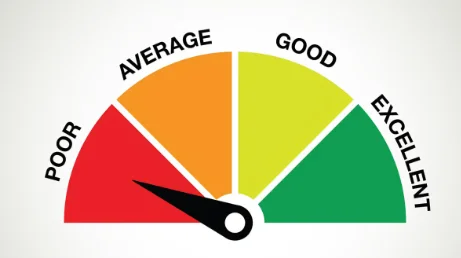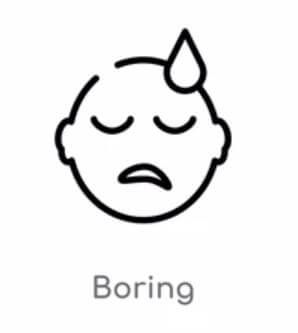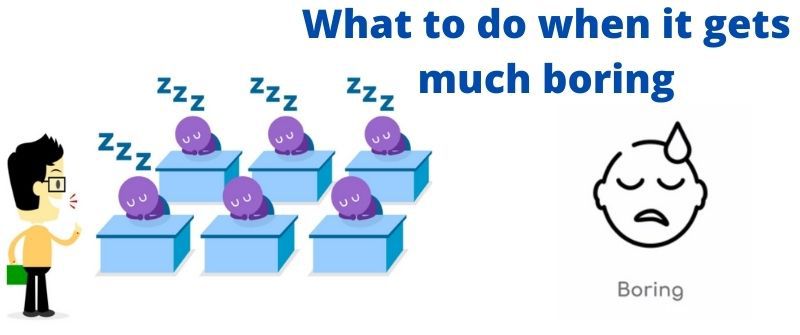Many people perceive that professors are not good teachers. One school of thought holds that a college professor does not have training in teaching. It is because some of them do not regard themselves as teachers.
Some college professors are bad at teaching not because of incompetence but because they lack passion for education. They may have chosen the career to earn an income, and not as a calling.
Unlike other professions, teaching is a calling, and only those who enjoy it teach well.
If one chooses teaching and lecturing to earn an income, it will be clear when they progress with their educational duties. They will not enjoy the work, rather they will complete their tasks to do the job.
One can easily locate a bad professor within the first week of study. It happens when the same professor is teaching a required unit which is unavoidable.
Reasons why some Teachers are poor in Teaching
Telling that a professor is teaching badly or not is a subjective issue that depends on individuals. While one person may be OK with one lecture, another student may find it boring.
Here are some specific reasons why professors might be bad teachers

1. Low Morale
Such an issue arises when there is infighting between the unions and the administration.
When the professors feel the institution is not paying what they expect, their morale goes down.
2. Too Busy
Some professors find themselves in a tight schedule with a high bureaucratic burden to handle.
For instance, they attend student’s graduate meetings, sit on committees and participate in university marketing. Such commitments may make them skip some lecture sessions.
3. They believe to know much
Professors spend time doing research and reading academic journal articles. One great concern is this professor subjects the students to endless confusing phrases and words.
Some of the language use is unknown to the students due to their insufficient knowledge. The professor must use the right text that is readable to the student’s level.
4. Waiting for Retirement
When a professor is approaching the retirement age, some tend to slow their activities. For instance, certain professors may opt to ride on that card and remain inactive most of their time. As a result, they lose the passion for their subjects and offering poor service to their students.
5. Bad Student
Some may not be bad teachers, but the students may be holding onto bad expectations. Maybe you are a fresh graduate from high school where you used to hold on of the teacher to do the donkey’s work. At a university level, you must engage in a self-study approach that looks a bit different.
How to tell a bad professor – signs of a bad professor

Before you evaluate your professor, it is reasonable to attend the first couple of lectures before making a decision on dropping the course or not.
Ensure you look for these signs to tell if you have a bad professor:
This may be as a result of having a professor who is not passionate or not qualified.
Most universities require the professor to have a PhD for them to be allowed to teach. If this does not happen, the negative teaching experience may kick in.
A Boring Professor
By attending the initial lectures, you can determine if the professor is excitingly handling the lesson. It would be best if you got alarmed by a professor who stands and reads all his lessons from the notes. Such a trend may grow to the successive lesson and make it ever boring.
Does not give a syllabus
If a professor fails to give a course syllabus, then that is a great sign that he is not competent for the job.
For example, one may offer a one-page course description out of the web, which is an excellent sign of laziness.
Professor not assigning work
You should be worrying about a professor who does not assign work to students. Such a professor will subject you to having a course where you have nothing to brag about.
Alternatively, the same professor would offer some undoable work while raising high expectations from a student.
Not feeling the whole class
It is usually a red flag on any professor who does not attend the whole class session. For instance, the same professor may come to a class to introduce a topic and leave.
Furthermore, the teacher in focus skips several lectures without make-up classes or no apologies. That is an indicator that the professor is a poor planner and therefore incompetent.
What to do About a Bad Professor – how to Deal with Them
1. Seek Advice

Learn to give your professor a fair chance by seeking a piece of advice early enough in the semester.
Alternatively, another professor may be offering a similar class somewhere.
Still, you could go for another class with a different tutor. Also, ask your advisor to connect you to other students who are ahead of you for resourceful help.
2. Reach out to your Professor
You can seek the attention of your bad professor and let him explain to you the demands of the course. You can still write them an email and express your desire to seek extra help.
Show them that you are making an effort to understand their unique teaching style and seek more elaborations on some matters.
3. Adhere to the syllabus when in doubt
You can opt to use your syllabus as your defense. Unfortunately, a professor may deviate from the syllabus by offering take-away assignments.
The cool thing is you can raise the issue if you realize the professor is not sticking with the syllabus and restore the class to the lane.
4. Seek for Addition Resources
In case you have additional books that the professor did not explain in simpler terms, then use them to upgrade your understanding.
Alternatively, you can seek YouTube videos that are useful to the same course. Still, you can search the information on the internet and expand your knowledge over the same.
5. Begin study sessions
Reach out to some students and begin the study sessions. Such a program not only helps you to understand the contents of the course but it may save your grade.
Begin by contacting your students through emails and schedule some study sessions, and exchange ideas in an excellent way.
How to handle unfair professors
While handling an unfair professor, it is wise to show good faith first. This helps you maintain the relationship and also protects his or her job. As noted in another post, poor performance can make a professor be fired or furloughed if the university has evidence of it.

Therefore, speak to the professor in focus and acquire enough information before taking another step.
If unsatisfied by the first move, then follow the chain of command.
Follow the protocols on how the institution solves conflicts, for instance, the grade disputes.
If you believe the professor graded you unfairly, you should document your evidence.
Firstly, let the authority see the conversation you had with the professor via email with your assignments.
Furthermore, indicate the grading rubrics and the feedback from the professor. However, be careful not to cause an issue. You can read our guide on how to report a professor for some insights on what to do and what not to.
How to Rate your Professor effectively
The best and most effective way to rate your professor is by providing feedback on your institution’s rating platform. Most universities have an official feedback and rating mechanism for their staff.
This is the most effective since the rating will actually be read by those who make the decisions. However, you can rate your prof on online platforms that offer such services.
Before the internet, some students used to ask their fellow colleagues about the competence of a specific professor. Now, there exist several online resources that can rate your professor.
One of the most popular platforms is “Rate my professors.” It has the rating of thousands of universities in the US, Canada, and the UK.
The only procedure is to search for the name of the professor. The platform will indicate the quality of that professor. Using that information, you will know if you can take classes for him or not. You will read the reviews from his former students.
How to Report a Bad Professor
Reporting a professor is not an exciting thing, but extreme cases require students to react. The right way of reporting your professor is by following the chain of command.
The first action is to reach out to the professor for a talk. Suppose the conversation did not yield fruits, then you are free to climb the chain.
The second effort is to see the departmental chair. In case you did not get help, then you are free to seek a higher authority within the command.
Seek help from the Dean’s office and try to resolve the matter. Suppose it fails to materialize, then you should keep going higher.
Depending on the structure of your university, some may go to a Provost or the President. At this point, the final authority should solve that issue amicably.
Why are some college professors so rude?
Some professors may decide to be rude due to handling bad students, which are likely to cause a mess. For instance, a student may fail to submit an assignment causing a professor to fail to show an inch of mercy.
Another source of rudeness in some professors is power and pride. Some tend to look down on someone who has fewer academic achievements than them. One can easily intimidate you if you lack similar qualifications in the academic world.
Why are some professors so bad?
Some professors are bad explainers. For instance, a professor may fail to highlight key terms or put a put across in simpler terms. This makes them bad because they tend to read too much and forget to use simpler language to match the level of students.
Another character that explains a bad professor is unfair grading. A bad professor may lower your grade because perhaps he did not like your writing style or reject the source you used in writing your final paper.
Also, a professor may sound bad since he/she may not regard himself as a teacher. Some handle that title for prestige because the university wants to use their books as a selling point. Also, many universities hire professors who are researchers and not teachers.
Why are Professors so weird?
Professors are people who are in constant research mood hence sacrificing their social skills. They concentrate much on reading and compromise on their interpersonal skills. Many outgoing people find it challenging to interact with such a personality.
Some people perceive them as not being ‘normal’ due to their engagements. You only need to understand their personality and tap any valuable thing that is of great help towards your coursework.

